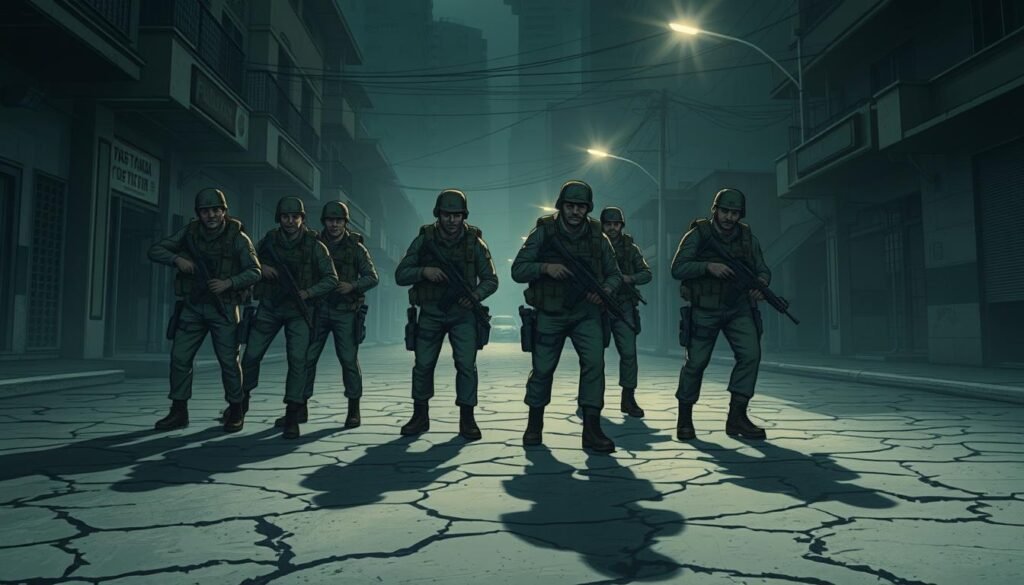Espionage has long been a critical tool for safeguarding national security. Filipino spies and informants have played a pivotal role in shaping history, often operating in the shadows to gather vital intelligence. Their efforts have not only protected the Philippines but also influenced global events.
Over time, espionage has evolved from simple information gathering to complex operations involving advanced technology and strategic planning. Filipino operatives have demonstrated remarkable courage and innovation, often risking their lives for the greater good. Historical documents and declassified records provide a glimpse into their clandestine world.
Understanding the cultural and operational dimensions of espionage is essential. It highlights the bravery and resourcefulness of those who work behind the scenes. This article delves into the untold stories of Filipino spies, their contributions to national security, and their impact on the world stage.
Key Takeaways
- Filipino spies have significantly influenced national and global security.
- Espionage has evolved into a sophisticated field over time.
- Historical documents provide insights into secret operations.
- Filipino operatives are known for their courage and innovation.
- Understanding espionage requires exploring both cultural and operational aspects.
Overview of Espionage and Its Historical Importance
The art of gathering secret information has shaped the course of history for centuries. From ancient civilizations to modern nations, espionage has been a cornerstone of strategy, influencing the outcomes of wars, political decisions, and global power dynamics.

The Evolution of Spying Through the Ages
Espionage dates back to ancient times, with early examples found in Hammurabi’s era and the Amarna Letters. These early methods relied on human intelligence and coded messages. Over time, techniques evolved, becoming more sophisticated and organized.
During the American Revolution, espionage took on a new dimension. The Culper Ring, a network of operatives, provided critical intelligence to George Washington. This marked a turning point in the use of organized spy networks.
By the 20th century, espionage had become a highly specialized field. The establishment of agencies like the CIA and the KGB reflected the growing importance of intelligence in national security.
“Understanding the enemy is half the battle,”
a principle emphasized by Sun Tzu, remains relevant today.
Global Impact on National Security
The evolution of espionage has had a profound impact on global security. During World War I and II, intelligence operations played a decisive role in shaping outcomes. The Cold War further highlighted the importance of counterintelligence and covert operations.
In the modern era, espionage continues to influence national security strategies. Countries invest heavily in intelligence agencies to protect their interests and stay ahead of potential threats. The history of espionage serves as a reminder of its enduring significance in a rapidly changing world.
Filipino Spies in History
The Philippines has a rich history of intelligence operations that shaped its national identity. From colonial rule to wartime struggles, Filipino operatives have played a crucial role in gathering critical information. Their efforts not only protected the nation but also influenced global events.
The Roots of Espionage in the Philippines
Espionage in the Philippines began during its colonial period. Under Spanish and later U.S. rule, locals used intelligence gathering to resist foreign dominance. These early efforts laid the foundation for organized operations during wartime.
During World War II, Filipino operatives became vital allies to the U.S. military. They provided critical intelligence on Japanese positions, helping to turn the tide of the war. Their bravery and resourcefulness were instrumental in key victories.
Contributions During Periods of War
Filipino operatives were deeply involved in military conflicts, particularly those linked to U.S. interests. One notable example is Josefina Guerrero, who risked her life to deliver a map of Japanese minefields. Her actions enabled a successful assault on Manila Harbour in 1944.
Other operatives mapped enemy gun emplacements and gathered strategic information. Their contributions often went unrecognized but were essential to the success of major operations.
Evolution of Intelligence Practices
Over time, intelligence practices in the Philippines evolved from informal networks to structured systems. The establishment of formal agencies marked a shift toward more organized and efficient operations.
Today, these practices continue to adapt to modern challenges. The legacy of early operatives remains a source of inspiration for current intelligence efforts.
Notable Operations and Missions
Filipino operatives carried out numerous high-stakes missions. One such mission involved delivering critical intelligence across treacherous terrain. These efforts often required immense courage and ingenuity.
Historical records highlight the sacrifices made by these individuals. Their stories serve as a testament to the enduring importance of espionage in national security.
The Strategic Role of Spies in the Philippines
Intelligence gathering has always been a cornerstone of strategic operations in the Philippines. From colonial resistance to modern-day security, operatives have played a pivotal role in shaping the nation’s history. Their work, often unseen, has influenced political unions and safeguarded national interests.

Defining “Spies” and Their Mission
In the Philippines, a “spie” is more than just an individual gathering information. Historically, they were locals who resisted colonial rule by providing critical intelligence. Today, they are part of structured networks, working to protect national security.
Their missions often involve high risks. From mapping enemy positions to delivering coded messages, these operatives have faced life-threatening challenges. Their contributions, though rarely publicized, have been instrumental in key victories.
Critical Years and Political Unions
Certain years stand out in the story of Filipino intelligence. During World War II, operatives provided vital information that shaped the outcome of the war. Their efforts strengthened political unions, particularly with the U.S., and influenced global events.
“The success of any mission depends on the bravery of those who gather intelligence,”
a principle that has guided Filipino operatives for decades.
Verified Accounts and Strategic Importance
Historical records highlight specific stories of courage. For example, during the 1940s, operatives risked their lives to deliver maps of enemy positions. These verified accounts underscore the strategic importance of having a reliable intelligence network.
In modern times, the role of intelligence has evolved. Yet, the legacy of these operatives remains a source of inspiration. Their work continues to protect the Philippines and shape its future.
Key Espionage Techniques and Tradecraft
From covert human intelligence to cutting-edge cyber methods, espionage has transformed into a multifaceted discipline. Over the years, operatives have relied on a mix of traditional and modern techniques to gather critical information. These methods have shaped the outcomes of wars, political decisions, and global security strategies.

Human Intelligence and Covert Operations
Human intelligence, or HUMINT, remains one of the oldest and most effective espionage techniques. It involves gathering information through direct interactions, often in high-risk environments. During the American Revolution, figures like George Washington relied on networks like the Culper Ring to gain strategic advantages.
Covert operations often require operatives to blend into their surroundings. Techniques like dead drops and coded messages have been used for centuries. For example, John André, a British operative, used secret codes to communicate with American loyalists during the Revolutionary War.
Modern Methods versus Traditional Techniques
Today, espionage has embraced technology to enhance its effectiveness. Cyber methods, such as hacking and digital surveillance, have become essential tools. However, traditional techniques like cryptography and steganography still play a vital role in securing communications.
Leadership also plays a crucial part in shaping espionage strategies. Decisions made by the president and other high-level authorities often dictate the direction of intelligence operations. For instance, during the Cold War, American presidents prioritized counterintelligence to combat Soviet threats.
The evolution of espionage techniques reflects the changing nature of global security. By combining the best of both worlds, operatives continue to adapt and innovate in their mission to protect national interests. Learn more about the historical infrastructure legacy that shaped these strategies.
Impact of Filipino Informants on Military Operations
Filipino informants have been instrumental in shaping the outcomes of military operations throughout history. Their ability to gather critical information has often turned the tide in favor of their allies. From colonial resistance to modern-day conflicts, these individuals have risked their lives to protect their country.

Case Studies from Historical Conflicts
During World War II, Filipino informants provided vital intelligence to U.S. military commanders. One notable example is the successful operation against the Abu Sayyaf group. American spy planes, aided by local information, tracked down a senior leader, leading to a significant victory in the fight against terrorism.
Another case involves the rescue of prisoners at the Santo Tomas POW camp in 1945. Filipino guerrillas, working with U.S. forces, used intelligence gathered by local informants to plan and execute the mission. This operation saved thousands of lives and demonstrated the strategic value of reliable information.
Interplay Between State Intelligence and Government Protocols
The collaboration between the state and local informants has been crucial in shaping military strategies. The Philippine government has often relied on these networks to gather intelligence on enemy positions. This partnership has led to policy changes and improved national defense strategies.
“The success of any mission depends on the bravery of those who gather intelligence,”
a principle that has guided Filipino operatives for decades. Their contributions have not only protected the country but also influenced global events.
In modern times, the role of informants continues to evolve. The legacy of their bravery and resourcefulness remains a source of inspiration for current intelligence efforts. Their work highlights the enduring importance of reliable information in safeguarding national security.
Espionage Operations During Critical Historical Moments
Espionage operations have shaped pivotal moments in history, influencing outcomes in ways often unseen. From the American Revolutionary War to the Cold War, intelligence gathering has played a decisive role in shaping global events. Filipino operatives, alongside their international counterparts, have contributed significantly to these efforts.

The Influence during American and Revolutionary Wars
During the American Revolutionary War, espionage was a key factor in securing independence. Networks like the Culper Spy Ring provided critical intelligence to George Washington. These operatives used techniques such as dead drops and invisible ink to communicate securely.
Filipino contributions during this period were less documented but equally impactful. Local informants often provided valuable insights into enemy movements, aiding broader strategic goals. Their efforts laid the groundwork for future intelligence operations.
Filipino Contributions in Global Contexts
In the Cold War era, espionage took on a new dimension. The soviet Union and the United States engaged in a high-stakes intelligence battle. Filipino operatives played a role in this global conflict, often acting as intermediaries in sensitive operations.
One notable example is the role of Filipino personnel in gathering intelligence on communist activities in Southeast Asia. Their work helped maintain regional security and supported broader U.S. objectives.
| Conflict | Key Espionage Operation | Outcome |
|---|---|---|
| American Revolutionary War | Culper Spy Ring | Critical intelligence for Washington |
| Cold War | Filipino intelligence networks | Enhanced regional security |
These operations highlight the importance of coordinated efforts by intelligence agencys. The legacy of these contributions continues to influence modern security strategies. For more on the geopolitical dynamics of the Cold War, explore this detailed analysis.
Profiles of Notable Filipino Spies and Informants
Behind every major historical event, there are unsung heroes who shaped its outcome. Filipino operatives have often worked in the shadows, their contributions critical to national and global security. This section highlights their bravery, strategic ingenuity, and lasting impact.

Biographical Sketches and Heroic Acts
One notable figure is Josefina Guerrero, who risked her life during World War II to deliver a map of Japanese minefields. Her actions enabled a successful assault on Manila Harbour in 1944. Guerrero’s story is documented in a book that details her covert operations and the sacrifices she made.
Another hero is Juan Pajota, who played a key role in the Raid at Cabanatuan. His intelligence work led to the rescue of over 500 prisoners of war. Pajota’s strategic use of a civilian cover allowed him to gather critical information without detection.
Their Bravery and Strategic Impact
These operatives often used techniques similar to those employed by spies in Washington and the soviet union. For example, coded messages and dead drops were common methods to ensure secure communication. Their work not only protected the Philippines but also influenced global events.
Historical records, including an archival collection, provide insights into their missions. These accounts reveal how their strategic covers enabled them to operate effectively in high-risk environments. Their contributions remain a source of inspiration for modern intelligence efforts.
“The success of any mission depends on the bravery of those who gather intelligence,”
Their legacy continues to shape the political landscape in the Philippines, highlighting the enduring importance of reliable information in safeguarding national security.
Integration of Intelligence and National Security in the Philippines
The seamless integration of intelligence into national security frameworks has been a cornerstone of the Philippines’ defense strategy. Over time, espionage has evolved from informal networks to structured systems, shaping government policies and safeguarding the country’s interests.

The Role of Espionage in Shaping Government Policies
Espionage has played a pivotal role in influencing government decisions. Historical figures like George Washington relied on intelligence networks to secure strategic advantages. Similarly, the Philippines has used intelligence to resist colonial rule and protect its sovereignty.
In modern times, organizations like the CIA have set benchmarks for intelligence practices. The Philippines has adopted similar frameworks, integrating advanced technologies and structured networks to enhance its national security. This evolution reflects the changing demands of global security.
The influence of espionage on policy formulation is evident in key historical moments. For example, during World War II, intelligence gathered by Filipino operatives shaped military strategies and influenced political unions. Today, the Armed Forces of the Philippines (AFP) continues to enhance its intelligence and cyber defense capabilities, as highlighted in this report.
| Era | Intelligence Practice | Impact |
|---|---|---|
| Colonial Period | Informal Networks | Resistance to Foreign Rule |
| World War II | Organized Operations | Key Military Victories |
| Modern Era | Advanced Technologies | Enhanced National Security |
The integration of intelligence into governance has been a continuous process. From the early days of George Washington to the modern practices of the CIA, reliable information has been the backbone of effective government action. This link remains critical in addressing evolving threats and ensuring the safety of the national community.
Comparative Analysis: Filipino vs Global Espionage Practices
Intelligence practices vary widely across the globe, shaped by unique cultural and historical contexts. Filipino operatives have developed strategies that reflect their nation’s specific challenges and strengths. In contrast, global espionage practices, particularly during the Cold War, have often been driven by geopolitical rivalries and technological advancements.

Lessons from International Espionage Operations
During the Cold War, espionage became a critical tool for global powers. The director of the CIA, Allen Dulles, emphasized the importance of human intelligence in countering Soviet threats. This era saw the rise of sophisticated techniques like satellite surveillance and cyber espionage, which influenced intelligence practices worldwide.
Filipino operatives, however, relied more on grassroots networks and local knowledge. Their ability to blend into communities provided a unique advantage in gathering information. This approach contrasts with the centralized, technology-driven methods of Western agencies.
Local Adaptations and Nuanced Strategies
Over the past century, Filipino intelligence has adapted to its environment. For example, during World War II, operatives used traditional methods like coded messages and dead drops. These techniques were effective in navigating the nation’s rugged terrain and complex social structures.
In modern times, the Philippines has integrated global practices while retaining its local nuances. The director of the National Intelligence Coordinating Agency (NICA) has emphasized the importance of balancing technology with human intelligence. This hybrid approach has proven effective in addressing both internal and external threats.
“The success of any intelligence operation lies in its ability to adapt to local realities,”
This principle has guided Filipino operatives for decades. Their strategies, shaped by the nation’s history and culture, offer valuable lessons for global intelligence communities. For a deeper understanding of these practices, explore this detailed analysis.
Cultural and Political Implications of Espionage in the Philippines
Espionage in the Philippines has shaped not only political landscapes but also cultural narratives, influencing how the public perceives national security. The mission of intelligence operatives often extends beyond gathering information; it impacts societal trust and national identity.

Public Perceptions and Media Portrayals
Media plays a significant role in shaping public opinion about espionage. In the Philippines, local media often highlights the bravery of operatives, while international outlets, like those in New York, focus on the strategic implications. These portrayals can either build trust or fuel skepticism.
For example, the case of Alice Guo, a former mayor accused of being a Chinese agent, has sparked debates about foreign influence. The allegations of foreign influence have raised questions about the integrity of public officials and the effectiveness of national security measures.
Cultural Implications of Covert Operations
Covert operations often carry cultural weight. In the Philippines, the idea of a “double life” resonates deeply, as operatives must balance their public personas with their secret missions. This duality is reflected in local literature and films, which often depict spies as both heroes and outcasts.
In contrast, China’s espionage practices are often portrayed as systematic and state-driven. These differences highlight how cultural contexts shape the perception of intelligence work.
Global Parallels and Political Narratives
Drawing parallels with global practices offers valuable insights. In New York, espionage is often framed as a necessary evil, essential for protecting democratic values. In the Philippines, however, it is seen as a tool for preserving sovereignty against external threats.
These differing perspectives influence political narratives. For instance, the involvement of Chinese nationals in Philippine intelligence operations has led to increased scrutiny and policy changes. The public’s trust in government institutions often hinges on how these issues are addressed.
Broader Social Impact
Espionage’s impact extends beyond politics. It shapes national identity, influencing how Filipinos view their history and future. The sacrifices of operatives, often unsung, serve as a reminder of the complexities of national security.
As the Philippines navigates its relationship with global powers like China, understanding the cultural and political implications of espionage becomes crucial. It is not just about gathering information; it is about safeguarding the nation’s values and aspirations.
Conclusion
The legacy of Filipino intelligence operations continues to shape national security strategies. From the revolutionary war to modern-day missions, covert efforts have been vital in safeguarding the nation. The use of codes and meticulously preserved collections of documents has provided invaluable insights into these operations.
Historical reflection is crucial in guiding future strategies. The cold analysis of past missions reveals patterns and lessons that remain relevant today. Understanding these practices helps in adapting to evolving threats.
Espionage’s role in the revolutionary war set a precedent for organized intelligence networks. These early efforts laid the groundwork for modern techniques. The integration of codes and advanced technologies has further enhanced operational effectiveness.
Preserving collections of historical records ensures that the sacrifices of operatives are not forgotten. Their bravery and ingenuity continue to inspire current and future intelligence efforts. The cold realities of espionage highlight the importance of vigilance and adaptability.
For a deeper understanding of espionage’s impact, explore this detailed analysis. The lessons from the past remain essential in navigating the complexities of national security.
FAQ
What is the historical significance of espionage in the Philippines?
Espionage in the Philippines has played a critical role in shaping the nation’s history, particularly during conflicts like the American and Revolutionary Wars. Filipino informants provided vital intelligence that influenced military strategies and outcomes.
How did Filipino spies contribute to global intelligence efforts?
Filipino spies and informants have made significant contributions to global intelligence by adapting local strategies to international contexts. Their efforts during critical historical moments showcased their bravery and strategic impact on a global scale.
What are the key techniques used in Filipino espionage?
Filipino espionage relies on a mix of traditional and modern methods, including human intelligence, covert operations, and nuanced local adaptations. These techniques have evolved to meet the demands of national security and global challenges.
Who are some notable Filipino spies in history?
Several Filipino spies have left a lasting legacy through their heroic acts and strategic contributions. Their biographies highlight their bravery and the critical role they played in shaping the nation’s security and policies.
How has espionage influenced Philippine national security?
Espionage has been integral to shaping Philippine national security by providing actionable intelligence that informs government policies. It has also helped the country adapt to global security challenges.
What are the cultural implications of espionage in the Philippines?
Espionage in the Philippines has shaped public perceptions and media portrayals, often highlighting the bravery and strategic importance of spies. It reflects the nation’s unique cultural and political context.
How do Filipino espionage practices compare to global methods?
Filipino espionage practices incorporate lessons from international operations while adapting to local nuances. This blend of global and local strategies has made Filipino intelligence efforts both unique and effective.
What role did Filipino informants play in military operations?
Filipino informants have been pivotal in military operations, providing critical intelligence that influenced the outcomes of historical conflicts. Their contributions are documented in various case studies.
Source Links
- ‘Spies’ and spas: How PH is doubling down on ‘red flag’ Chinese investors
- Michael Yang a ‘key actor in Chinese intel ops in PH’ —Hontiveros
- It pays to spy on Reds as 5 tipsters get P14.2M in reward from AFP
- Espionage
- Espionage Facts
- History of espionage
- Josefina Guerrero
- From Outcast to Spy to Outcast: The War Hero with Hansen’s Disease | The National WWII Museum | New Orleans
- Was a Philippine Mayor a Secret Chinese Spy?
- In Manila, how China set up an influence, espionage network
- Filling in the Indo-Pacific Latticework in Southeast Asia – The US-Japan-Philippines Trilateral Summit
- Tradecraft
- Tradecraft Secrets From the CIA, KGB, Mossad, and More
- From dead drops to laser-spying: discover tradecraft through the decades
- Philippine Officials Detail the Trap, Set With U.S. Help, That Snared a Rebel Leader (Published 2002)
- OSS in Action The Pacific and the Far East (U.S. National Park Service)
- Espionage and the Manhattan Project, 1940-1945
- Spying and Espionage
- Bold, Brilliant and Daring: 6 of History’s Most Notable Female Spies
- CIA Makes It Easier for Potential Informants in Iran, China and North Korea to Share Tips
- Filipinos wary of spies among us
- Año asks Congress to pass stiffer anti-espionage laws
- The spies among us
- Current Issue – Comparative Connections
- Clinical outcomes and health care utilization pre- and post-laparoscopic radiofrequency ablation of symptomatic fibroids and laparoscopic myomectomy: a randomized trial of uterine-sparing techniques (TRUST) in Canada
- Philippines Says It Is ‘Monitoring’ Media Reports of Covert Foreign Ops
- What we know so far about China’s alleged spying on PCG, Navy in Palawan
- Conclusion: Experts warn of spying risk in AFP deal with China-backed telco
- American Spies: Espionage against the United States from the Cold War to the Present
- No title found

